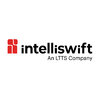Top 250 Mobile Development Interview Questions and Answers
Updated 3 Jul 2025

Asked in Nvidia

Q. What are the basic components of Android?
The basic components of Android are activities, services, broadcast receivers, and content providers.
Activities are the user interface components that allow users to interact with the app.
Services are background components that perform long-running o...read more

Asked in Mind You Infotech

Q. What do you use as a backend for Flutter applications?
Flutter does not have a built-in backend. Developers can use various backend technologies like Firebase, Node.js, Django, etc.
Flutter does not provide a default backend
Developers can choose any backend technology based on their requirements
Popular ba...read more

Asked in TCS

Q. Why React Native and not Flutter?
React Native has a larger community and better support for native modules.
React Native has a larger community and better support for native modules.
React Native is more mature and stable compared to Flutter.
React Native has better performance and fas...read more

Asked in Wipro

Q. Can we defer an OS update for an iOS device using an MDM solution? If yes, how can we do so?
Yes, we can differ an OS update for an iOS device using an MDM solution.
MDM solution allows administrators to control the update process
Administrators can choose to delay or skip updates for certain devices
This can be done by creating update policies...read more

Asked in IBM

Q. What is Android development?
Android development is the process of creating applications for the Android operating system.
Android development involves writing code in Java or Kotlin to create mobile applications.
It includes designing user interfaces, implementing functionality, ...read more

Asked in Blinkit

Activity lifecycle in Android development involves various states like onCreate, onStart, onResume, onPause, onStop, onDestroy.
Activity is created with onCreate() method
Activity becomes visible with onStart() and onResume() methods
Activity goes into ...read more


Asked in Blinkit

Fragment lifecycle in Android involves various states like created, started, resumed, paused, stopped, and destroyed.
Fragments are created using the onCreateView() method.
Fragments go through states like created, started, resumed, paused, stopped, an...read more
Asked in Patona Technologies

Q. How do you implement responsiveness in an application based on screen sizes?
Responsiveness in app can be achieved using CSS media queries and responsive design principles.
Use CSS media queries to apply different styles based on screen sizes
Design the app layout to be flexible and adapt to different screen sizes
Use responsive...read more

Asked in Swiggy

RecyclerView is a flexible view for providing a limited window into a large data set.
RecyclerView recycles views to improve performance and memory usage.
It uses a LayoutManager to organize and position items within the view.
Adapter provides data to b...read more
Asked in Sensight Technologies

Q. Tell me about Push Notifications and why we use them.
Push Notification is a message that pops up on a mobile device. It is used to notify users about new content or events.
Push notifications are used to keep users engaged with an app.
They can be used to inform users about new content, updates, or event...read more
Mobile Development Jobs



Asked in Shaonomy Tech

Q. What is the Ionic Framework?
Ionic Framework is an open-source UI toolkit for building high-quality, cross-platform mobile and web apps using web technologies.
It is built on top of Angular and Apache Cordova
It provides pre-built UI components and tools for building mobile apps
It...read more

Asked in VirtualMaze

Q. What skills are needed to develop an Android application?
Skills needed to develop an Android application
Proficiency in Java or Kotlin programming languages
Familiarity with Android Studio IDE
Knowledge of Android SDK and APIs
Understanding of UI/UX design principles
Ability to work with databases and web servi...read more

Asked in GoMechanic

Q. Describe the full Fragment lifecycle.
The Fragment life cycle describes the various stages a Fragment goes through during its existence.
The Fragment is created using the constructor method.
The Fragment is then attached to an Activity using the onAttach() method.
The onCreateView() method ...read more

Asked in Siemens

Q. Tell me about the application lifecycle.
App life cycle refers to the stages an application goes through from installation to removal.
App is installed on a device
App is launched and runs
App goes into background when not in use
App may be terminated by the user or system
App data may be cleare...read more

Asked in Air India

Q. What is LaunchEffect in Jetpack Compose?
LaunchEffect is a function in Jetpack Compose that allows you to trigger side effects when a composable is first launched.
LaunchEffect is used to perform actions such as fetching data from a network or initializing a resource when a composable is fir...read more
Asked in Profuture Tech Solutions

Q. How is Laravel used in Mobile Development?
Laravel is a PHP framework commonly used for backend development in mobile applications.
Laravel provides a robust backend infrastructure for mobile apps.
It offers features like routing, database management, and authentication.
Laravel's RESTful API de...read more

Asked in Nano Nino

Q. What are the concepts you came across in Android application development?
Android application development concepts include activities, intents, layouts, fragments, services, and content providers.
Activities: Represent the UI and handle user interactions.
Intents: Enable communication between components.
Layouts: Define the s...read more

Asked in TCS

Q. Do you know about React Native Context API?
Yes, React Native Context API is a way to manage global state in React Native applications.
Context API allows passing data through the component tree without having to pass props down manually at every level.
It is useful for managing global state suc...read more

Asked in Veltris

Q. How do you upload an app to both the Apple App Store and Google Play Store?
To upload the app to both stores, create separate builds for each platform and follow the submission guidelines of each store.
Create separate builds for iOS and Android platforms
Follow the submission guidelines of the App Store and Google Play Store
S...read more

Asked in YASH Technologies

Q. What is Xamarin Profiler?
Xamarin Profiler is a tool for analyzing and optimizing the performance of Xamarin apps.
Xamarin Profiler helps identify memory leaks, CPU usage, and other performance issues
It can be used with both iOS and Android apps
The tool provides detailed repor...read more
Asked in Mylo

Q. How do you handle ANR (Android Not Responding)?
ANR can be handled by optimizing code, using background threads, and avoiding long-running operations on the main thread.
Optimize code to reduce processing time
Use background threads for long-running operations
Avoid performing network operations on t...read more

Asked in Intelliswift - An LTTS Company

Q. What are native apps and hybrid apps?
Native apps are built for specific platforms while hybrid apps are built using web technologies and can run on multiple platforms.
Native apps are built using platform-specific programming languages like Swift for iOS and Java for Android.
Hybrid apps ...read more
Asked in Pixel Consultancy

Q. What is the difference between Hybrid and Native Mobile Applications?
Hybrid apps are developed using web technologies and can run on multiple platforms, while native apps are specifically built for a single platform using its native language.
Hybrid apps are developed using web technologies like HTML, CSS, and JavaScri...read more

Asked in Branch International

Q. Does shared preference encrypt data?
Yes, shared preferences do not encrypt data by default.
Shared preferences store data in XML format in plain text
If encryption is needed, developers should implement their own encryption methods
Sensitive data should not be stored in shared preferences...read more

Asked in EbixCash Limited

Q. What is the Xamarin Profiler?
Xamarin Profiler is a tool for analyzing and optimizing the performance of Xamarin apps.
Xamarin Profiler helps identify performance bottlenecks in the app code.
It provides detailed information on memory usage, CPU usage, and network activity.
Develope...read more

Asked in HARMAN

IntentService is a subclass of Service that can handle asynchronous requests on the main thread.
IntentService is used for handling long-running operations in the background without blocking the main thread.
It is started with an Intent and runs in a s...read more

Asked in Mobikwik

Implement multiple RecyclerViews on a magnified screen in an Android app by adjusting item sizes and spacing.
Adjust item sizes and spacing based on screen magnification level
Use nested RecyclerViews or custom layouts to display multiple lists
Implemen...read more

Asked in SPARX IT Solutions

Q. Have you implemented any Android SDK in your projects?
Yes, I have implemented Android SDK in multiple projects.
I have used Android SDK to develop various features like push notifications, location services, and in-app purchases.
I have also integrated third-party SDKs like Facebook and Google Maps SDKs i...read more
Asked in Greenpay Network

Q. What is Xamarin Forms?
Xamarin.Forms is a UI toolkit that allows developers to create cross-platform mobile apps using a single codebase.
Xamarin.Forms allows developers to write code once and deploy it across multiple platforms, such as iOS, Android, and Windows.
It provide...read more

Asked in Capillary Technologies

Q. What is a push notification?
A push notification is a message that pops up on a mobile device to alert the user about new updates or information.
Push notifications are commonly used by apps to engage users and provide timely information.
They can include text, images, and links t...read more

Top Interview Questions for Related Skills
Interview Experiences of Popular Companies










Interview Questions of Mobile Development Related Designations



Reviews
Interviews
Salaries
Users










